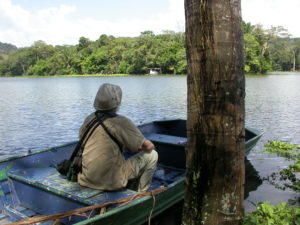Defining Ecological Identity

By Tim Goodwin
You most likely are not familiar with the term ecological identity. I am hoping this article will prompt thinking about yourself as an ecological citizen, teacher, and then what it could mean for your students. The 50th Earth Day was April 22nd, 2020. For the past 50 years, the primary strategy for addressing environmental issues was built on the assumption that increasing awareness and knowledge will enhance greater action. Despite such legislative successes as the Clean Air and Water Acts, among others; addressing ozone depletion; and shifting some behavioral norms regarding recycling, we still face environmental crises — more significant than ever before — in such issues as climate change and loss of biodiversity. This cause-and-effect assumption underscoring Earth Day did not result in the necessary changes in collective attitudes and behaviors regarding environmental issues among the general public[1]. Relying on a broad understanding of ecological principles and awareness of issues is not adequate for collective behavioral and legislative action and change. To affect widespread, sustainable change, individuals must operate from a deep understanding built on a solid knowledge base. There must also be a paradigm shift in the general public regarding one’s relationship to the natural world.
This content is restricted to subscribers only.
If you are not yet a subscriber, please consider taking out a subscription here.
If you are an existing subscriber, kindly log in or contact us at info@greenteacher.com for more information.





